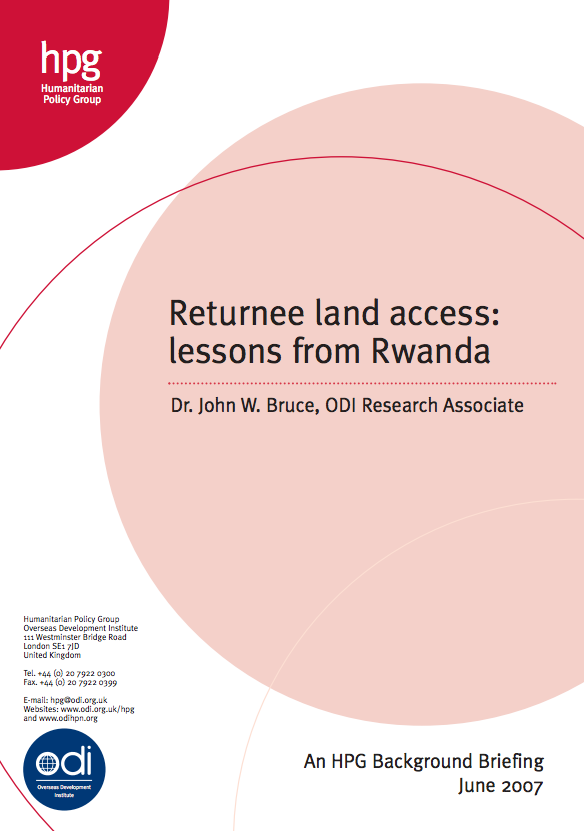The Overseas Development Institute (ODI) is the UK's leading independent think tank on international development and humanitarian issues.
Mission
Our mission is to inspire and inform policy and practice which lead to the reduction of poverty, the alleviation of suffering and the achievement of sustainable livelihoods in developing countries.
We do this by locking together high quality applied research, practical policy advice, and policy-focused dissemination and debate.
We work with partners in the public and private sectors, in both developing and developed countries.
Values
- Independence: ODI’s research, public affairs and policy advice are independent from its funders, and staff are able to challenge donor thinking and policy and the wider development consensus.
- High quality: Best practice, innovative approaches and continuous improvement are ensured in research, policy advice and public affairs.
- Fairness, diversity and equality: All staff and partners are treated fairly and with respect. ODI employment, disciplines and processes are appropriate for an institute focused on international development.
- Working together: There is continuous effort to foster better relationships throughout the organisation.
- Transparency and accountability: There is open reporting on the use of public funds, with full communication of our work to our donors, research subjects and partners.
- Sustainability: Resources are used in a sustainable way that reflects consciousness of the impact on the environment. The organisation works in a way that is sustainable, backed by commitment to its long-term viability.
Members:
Resources
Displaying 86 - 90 of 111Adapting to climate change in the water sector
This background note, published by the Overseas Development Institute, provides an overview of the potential risks and vulnerabilities that face the water sector due to climate change. It also summarises of some of the adaptive strategies, targeting both supply and demand of water, being employed across various sectors in the developing world and offers suggestions going forward. It concludes by assessing how current knowledge of climate change can help inform future planning of water sector interventions.
Crisis in Kenya: land, displacement and the search for 'durable solutions'
This policy brief explores the importance of land issues in forced displacement in Kenya, drawing out their implications for current humanitarian and early recovery interventions in the wake of the violence and displacement that followed the 2007 elections. Key messages nclude:
Returnees Land Access: Lessons from Rwanda
This background briefing reports on a study of land access
for returnees in Rwanda, and the impacts of land access
policies in the post-conflict period. It also seeks to
understand better the roles international humanitarian
agencies and NGOs have played, and how their performance
can be improved. It is not suggested that Rwanda is typical,
but rather that the centrality of land issues there has thrown
up a revealing set of broader questions.
Returnees Land Access : Lessons from Rwanda
This background briefing reports on a study of land access for returnees in Rwanda, and the impacts of land access policies in the post-conflict period. It also seeks to understand better the roles international humanitarian agencies and NGOs have played, and how their performance can be improved. It is not suggested that Rwanda is typical, but rather that the centrality of land issues there has thrown up a revealing set of broader questions.
Drawing a line under the crisis: Reconciling returnee land access and security in postconflict Rwanda
This report is part of a broader comparative effort by the Overseas Development Institute’s Humanitarian Policy Group on Land Tenure in Conflict and Post-Conflict Situations, which aims to inform and improve the policy and practice of humanitarian action and to inform related areas of international policy. It seeks to understand how land issues affect and are affected by violence and conflict resolution, what responses are appropriate and what lessons can be learned from specific contexts of land tenure interventions, both during and after conflict.





